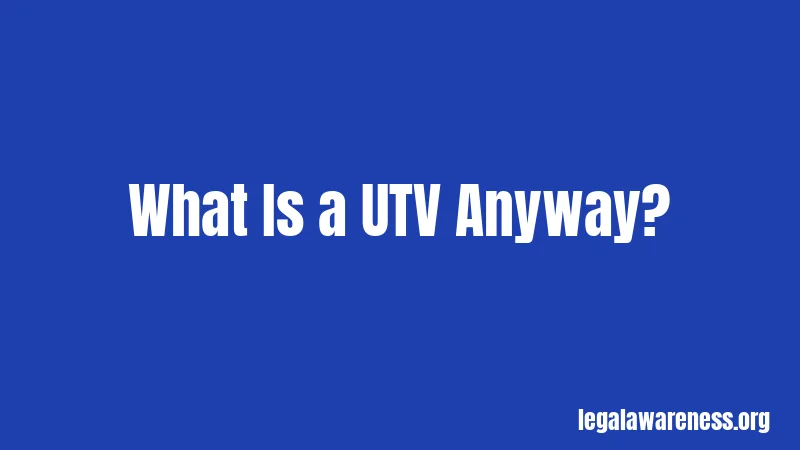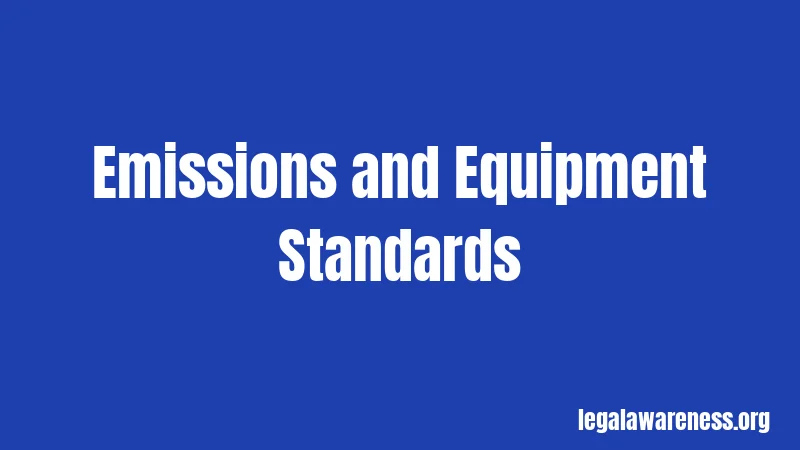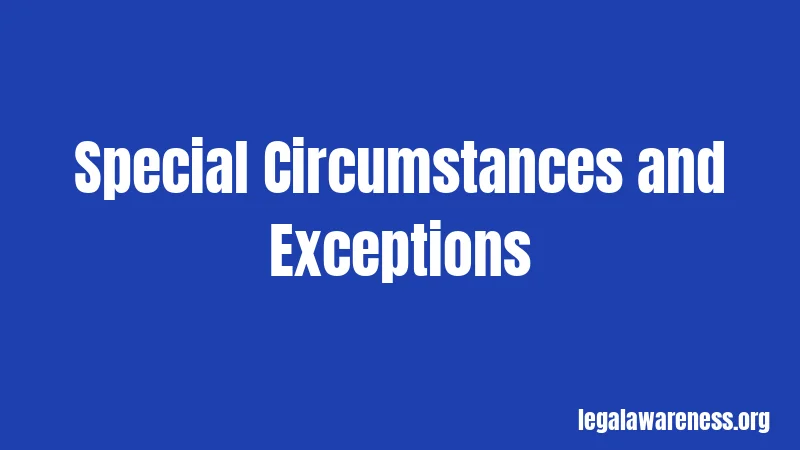UTV Laws in Missouri (2026): What You Actually Need to Know
Most people think they can just hop on a UTV and ride anywhere. Spoiler alert: that’s not how it works in Missouri. The rules are actually pretty strict, and honestly, a lot of riders don’t realize what they’re doing wrong until they get stopped.
Here’s the good news though. Once you understand Missouri’s UTV laws, staying legal is straightforward. We’re going to walk through exactly what you need to know to ride safely and legally.
What Is a UTV Anyway?

A UTV is an off-road vehicle. Most people call them utility task vehicles or side-by-sides. They’re bigger than ATVs but smaller than trucks. UTVs have handlebars or steering wheels, seats for multiple people, and powerful engines designed for rough terrain.
Missouri has specific rules about what counts as a UTV and where you can legally ride one. Think of it like the difference between a bicycle and a motorcycle. Each has different rules.
Basic UTV Laws in Missouri
Where You Can Actually Ride
Here’s the thing most riders miss. You can’t just ride your UTV anywhere you want. Missouri law is pretty clear about this.
You can ride on private property. That’s the easiest one. If someone gives you permission to ride on their land, you’re legal. Get written permission if possible. It saves headaches later.
Public trails are okay too. Missouri has designated off-road trails where UTVs are allowed. Your state parks and recreation areas often have marked trails specifically for this. Check with the Missouri Department of Conservation before you head out.
Now, here’s where it gets tricky. You cannot ride on public roads unless your UTV is specifically registered and equipped. We’ll get into that in a minute, but basically, your trails-only UTV can’t cruise down Main Street.
Registration Requirements
Okay, pause. Read this carefully. Registration is one of the biggest points of confusion.
If you only ride your UTV on private property or designated trails, you don’t need to register it. Pretty straightforward, right? You can buy your machine and start riding immediately on those approved areas.
But here’s the catch. If you want to ride on any public roads, even just to cross a street or get to a trailhead, your UTV needs to be registered. Missouri treats this like any other vehicle. You’ll need to go to your local license office and register it.
The registration process involves paperwork, a small fee, and proof of ownership. Honestly, this is the part most people find annoying, but it only takes a couple of hours.
Safety Equipment You Need
Missouri requires certain safety gear when you’re riding. This isn’t optional, and law enforcement takes it seriously.
You need to wear a helmet. Not just any helmet though. It has to be a DOT-approved motorcycle or ATV helmet. That plastic novelty helmet won’t cut it. Wear something that protects your head if you crash.
Eye protection is required too. Goggles or a face shield work. Your helmet visor counts if it’s integrated. The basic rule is simple: nothing can fly into your eyes while riding.
Long pants and long sleeves are the smart choice. They’re not always legally required on private property, but they definitely should be. Seriously though, you don’t want road rash.
Closed-toe shoes are a must. No sandals, no flip-flops. Your feet need protection from the engine, terrain, and anything else out there.
Age Restrictions
Not everyone can legally ride a UTV in Missouri. Age matters.
Adults can ride without restrictions. If you’re 18 or older, you’re good to go wherever the vehicle is allowed.
Children can ride too, but there are limits. Generally, kids under 16 shouldn’t be operating UTVs on public roads. Some areas allow younger riders on private property with adult supervision. It really depends on the location and the property owner’s rules.
If you’re planning to let younger family members ride, check the specific rules for wherever you plan to go. Not all areas have the same age requirements.
Emissions and Equipment Standards

Here’s something that surprises people. Missouri cares about emissions from UTVs.
Your UTV needs to meet federal emissions standards. If you bought it new from a dealer, it almost certainly does. But if you’ve modified the engine or buying used, double-check.
Illegal modifications can get you fined. Engine modifications that affect emissions are particularly serious. Missouri takes this stuff seriously because it affects air quality.
The safety equipment we talked about earlier matters too. Your UTV needs to have functioning lights if you’re riding near dusk or night. Headlights, taillights, and brake lights should all work. Your machine also needs a functional muffler.
Penalties for Breaking the Rules
Let’s talk about what happens when you mess up. And yes, people mess up.
If you’re caught riding an unregistered UTV on public roads, you’re looking at a fine. We’re talking something in the range of $100 to $500, depending on whether it’s your first offense. Think of it like a traffic ticket, but with more consequences potentially.
Riding without proper safety equipment can cost you too. Helmet violations and improper eyewear can result in fines. If you’re riding dangerously, the penalties increase significantly.
Trespassing on private property with your UTV has serious consequences. You could face criminal charges, not just a fine. Property owners take this seriously, and so do the courts. You might owe damages to the property owner too.
Operating while intoxicated is a major offense. This gets treated like drunk driving. You could face DWI charges, significant fines, license suspension, and possibly jail time. Seriously, don’t ride after drinking.
Special Circumstances and Exceptions

Not everything is black and white. There are some specific situations worth knowing about.
You can ride across public roads to get between private properties. This is basically a narrow exception that lets you cross, not ride along. It’s meant for getting from one piece of land to another, not for cruising down the highway.
Some landowners participate in Missouri’s Off-Road Trail Riding Program. These folks open their land to riders, and you can legally ride there with permission. The state helps coordinate these programs. Check the Missouri Department of Conservation website to find participating properties.
Native American reservations have their own UTV rules. If you’re planning to ride on tribal lands, contact the tribe first. They have separate regulations that might differ from state law.
How to Register Your UTV in Missouri
Actually doing this is easier than it sounds. Here’s what you need to do.
Step one: Gather your paperwork. You’ll need proof of ownership, which is your bill of sale or manufacturer’s certificate of origin. You’ll also need your identification.
Step two: Head to your local Missouri Department of Revenue office. Yes, the same place you register cars. You can find the nearest office online on their website.
Step three: Fill out the registration forms. The staff will help you with this. Ask questions if you’re confused. That’s literally their job.
Step four: Pay the registration fee. It’s modest, probably around $25 to $50 depending on your UTV’s value. This varies slightly.
Step five: Get your registration paperwork and display your registration as required. Most states require it to be visible on the vehicle.
The whole process usually takes less than an hour. Some places let you do this online too, which is even easier. Check your local office’s website.
Riding on State and National Forests
Okay, this one’s important. Forest lands have specific rules.
Missouri’s state forests allow UTV riding in designated areas only. You can’t just ride anywhere you want. Stick to marked trails. The state marks them clearly with signs and blazes.
National forests have their own regulations too. Mark Twain National Forest has specific UTV rules. You’re limited to designated routes. Get a map before you head out.
Riding off-trail damages the forest. It causes erosion, kills vegetation, and hurts wildlife. Plus, you could get fined. Respect the trails. Others want to enjoy them too.
Common Questions People Ask
Can I ride my UTV to the store?
Not unless your UTV is registered and equipped with proper safety features. Basically, if you can’t ride it on public roads legally, you can’t ride to the store. Use it to get to trailheads or across your property, but not for errands. Honestly, that’s what your truck is for.
Do I need insurance for my UTV?
Missouri doesn’t legally require UTV insurance like it does for cars. However, your homeowner’s or auto insurance might cover it. Check with your insurance company. I’d recommend getting coverage anyway. Medical bills from a wreck are expensive.
What’s the difference between an ATV and a UTV?
ATVs are smaller and typically seat one person. UTVs are larger, seat multiple people, and have different handling. Missouri’s laws treat them differently in some situations. If you’re riding an ATV, some rules might not apply to you the same way.
Can I modify my UTV’s engine?
You can modify it, but any modifications must keep it street-legal and emissions-compliant. Engine modifications that affect how the vehicle runs are okay. Modifications that disable emissions equipment are not. Check with local regulations before you do major work.
What should I do if I get stopped by a police officer?
Be respectful and cooperative. Have your registration and identification ready. If you get cited, don’t argue on the spot. You can fight it in court if you believe it’s wrong. Getting a ticket is already a bad day. Don’t make it worse.
Final Thoughts
Missouri’s UTV laws aren’t complicated once you understand them. Stay on designated trails or private property. Register if you’re using public roads. Wear your safety gear. Follow these basics and you’ll be fine.
Most importantly, respect the rules because they exist for good reasons. They protect you, other riders, and the land. Honestly, the best riding experience happens when everyone follows the rules.
Now you know the basics. Stay informed, stay safe, and when in doubt, call your local conservation office or license bureau. They’re happy to answer questions, and it only takes a few minutes.
References
- Missouri Department of Conservation – Off-Road Vehicle Laws: dnr.mo.gov
- Missouri Department of Revenue – Vehicle Registration: dor.mo.gov
- Mark Twain National Forest – Off-Road Vehicle Guidelines: fs.usda.gov/mtnf
- Missouri State Parks – Off-Road Riding Areas: mostateparks.com
- Federal ATV and UTV Safety Standards: cpsc.gov
